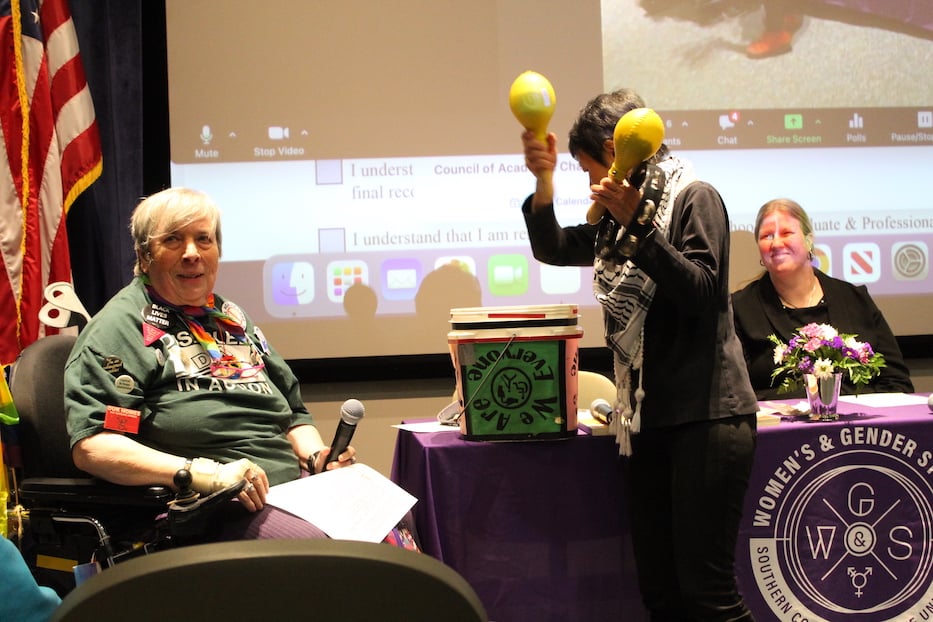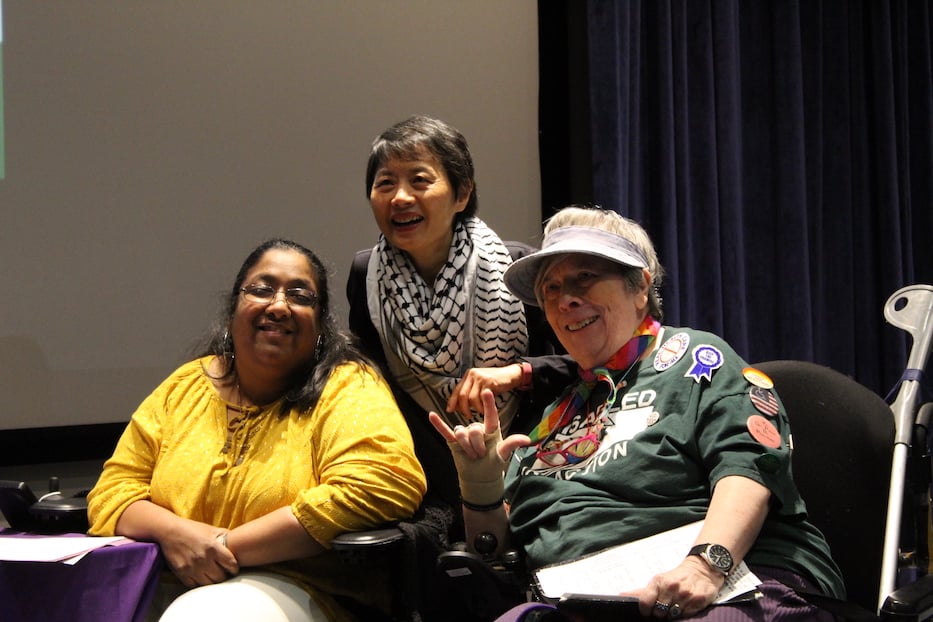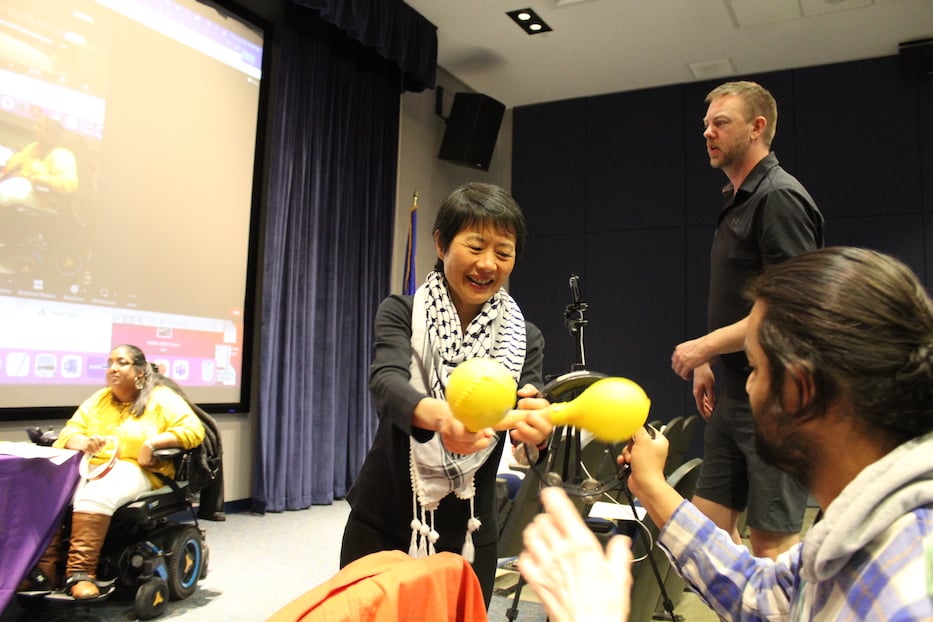
Elaine Kolb, Yi-Chun Tricia Lin and interpreter Alyssa Kurth from LifeBridge in Bridgeport. Danielle Campbell Photos.
An intimate group of in-person and online viewers stared up at a large screen, where the late Judy Heumann was speaking animatedly, bright-eyed and still full of life. On the screen, she traced her journey in the Disability Rights Movement from a person who wanted to change her own circumstances to a fierce fighter for others. The theater rustled with the sound of movement and breath as attendees listened to her story.
Last Thursday, the Women's and Gender Studies Program (WGS) at Southern Connecticut State University (SCSU) teamed up with disability rights champions Elaine Kolb and WGS Professor Sarah Rizzuto to remember Judy Heumann, a pioneer of the movement who helped lead the 504 Sit-Ins in April 1977, and made waves as the first teacher to use a wheelchair in New York City schools.
She is widely regarded as the mother of the disability rights movement for her 1970 court case suing the Board of Education of the City of New York on the basis of wheelchair accessibility. Her case was the first disability civil rights case ever brought to a federal court in the United States.

WGS Professor Sarah Rizzuto, Yi-Chun Tricia Lin and Elaine Kolb. Danielle Campbell Photos.
Rizzuto is an adjunct professor in both the English and Women's and Gender Studies Departments. As a graduate student, she interviewed Heumann as part of her project on people with disabilities and their experiences with romantic relationships.
She thanked Judy Heumann for the fight that made it possible for her to become a professor, wheelchair and all. Before Heumann’s advocacy in the 1970s, there was no legal precedent for a teacher in a wheelchair, Rizzuto noted. The case opened a door to generations of people with disabilities.
Reciting a poem, Rizzuto noted that no spoken or written word can sum up the mammoth impact that Heumann had on the people around her, and those who came after.
“How do I resist making you into metaphor?” Rizzuto asked aloud. “ When the alphabet cannot hold your grandness the way an iron lung did? The Internet claims those who spent time in one would likely experience a lifetime of disability as if it were a dirty word. But you breached pry into every room you wheeled into, every plane you rode, and every table you offered the uninvited. As those who didn't know how to welcome themselves.”

Kolb, meanwhile, expressed herself in poetry, song, and speech. She said she was allowing emotions to come as they did—including her deep grief and also her joy. Noting that complete strangers often ask “Were you born that way?” Kolb pointed to the role of humor in softening the blow of inequality and trauma.
As attendees listened, she told the story of becoming disabled, and the rich life of advocacy that has followed. Years ago, a man walked up to her at night, and stabbed her in her spinal cord. She was in the hospital for two months. She called herself lucky: many with that injury never walk or feel again and she was able to do so, with great difficulty.
It was the opening to a lifetime of advocacy. When Kolb left the hospital, she explained, her entire life changed. She went back to an apartment that had 22 steps that she had to struggle to get up and down. Her life now included looking at how much the world worked for able-bodied people only.
Kolb led the room in two of her originally written songs, “We Are Everyone” and “Let’s Get Together.” “We Are Everyone” holds a special place for her: it was the first song she wrote after being released from the hospital. The latter was written in the summer of 1987, before her first ADAPT (formerly American Disabled for Attendant Programs Today) demonstration.
The second song featured maracas and tambourines that made their way around the room to bring fun into the collective harmonizing.
Close to the end of the evening emcee and Professor Yi-Chun Tricia Lin, who chairs the Women and Gender Studies Department, said that she was glad the school and the department had made time for the event. She thanked graduate assistants Oluwatoyin Animashaun and Mike Sanger, who helped make the event a reality at the request of the night’s guests.
With the end of the semester fast approaching, there are a barrage of events on Southern’s campus, she added. And yet, a specific moment in Heumann's memory felt right.
“Doesn't matter how busy we are. I had to work with myself to say, ‘This is so important,’” Lin said. “This is the moment we also show up, right?”
In her closing speech, Kolb expressed the need for everyone to come together in this moment for disability rights.
“Disability Justice is interracial, multicultural, intergenerational, gender fluid with cross-disability solidarity. That's everyone. There's no exceptions," she said. "With Disability Justice, everyone is embraced. And we also embrace and remember and honor all ancestors of all kinds. We also embrace and honor Mother Earth. And together we all rise. Together, we all can rise.”